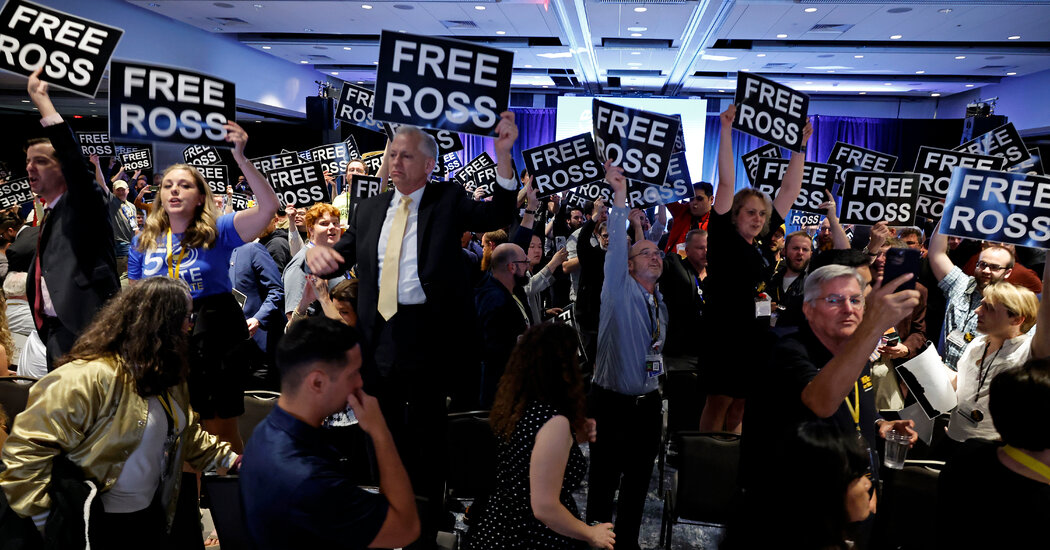Libertarian and crypto allies of Ross Ulbricht, who was serving a life sentence for distributing drugs on his Silk Road website, leveraged President Trump’s desire for political support to secure his release.
In December 2023, Angela McArdle, the chair of the Libertarian Party, flew to Mar-a-Lago to meet with Donald J. Trump.
Mr. Trump wanted to know how to win over libertarian voters, a constituency he thought could help him reclaim the presidency, Ms. McArdle said in an interview. She had an answer: Free Ross Ulbricht, a Bitcoin pioneer who was sentenced to life in prison in 2015 for creating Silk Road, the world’s largest online drug marketplace. Mr. Ulbricht was regarded as a libertarian hero for building an illegal market outside the government’s reach.
“I love freeing people,” Mr. Trump said, according to Ms. McArdle. Five months later, she hosted him at the Libertarian Party’s national convention, where he announced onstage that, if elected to the presidency, he would release Mr. Ulbricht.
On Tuesday, the day after his inauguration, Mr. Trump made good on that promise. He called Mr. Ulbricht’s mother, Lyn Ulbricht, to personally tell her that he had granted a full pardon to her son, who is now 40. In a post on Truth Social, Mr. Trump said the decision was “in honor of her and the Libertarian Movement, which supported me so strongly.”
Mr. Ulbricht’s pardon was not an obvious agenda item for Mr. Trump. Unlike the nearly 1,600 people who received pardons or commutations this week for their involvement in the Jan. 6 riot, Mr. Ulbricht had little direct connection to the president. But the move had long been in the works, after more than a decade of activism by Mr. Ulbricht’s supporters — including cryptocurrency investors, libertarian politicians and especially Ms. Ulbricht, who was a vocal proponent for her son’s release.
Many of them have enjoyed an unusual level of access to Mr. Trump. As it became clear last year that Mr. Trump would be the Republican nominee, they waged a behind-the-scenes lobbying campaign to secure a pardon — including pledging to raise money for his election bid — in what has turned into a case study of how a special interest group can mobilize to influence the president.
